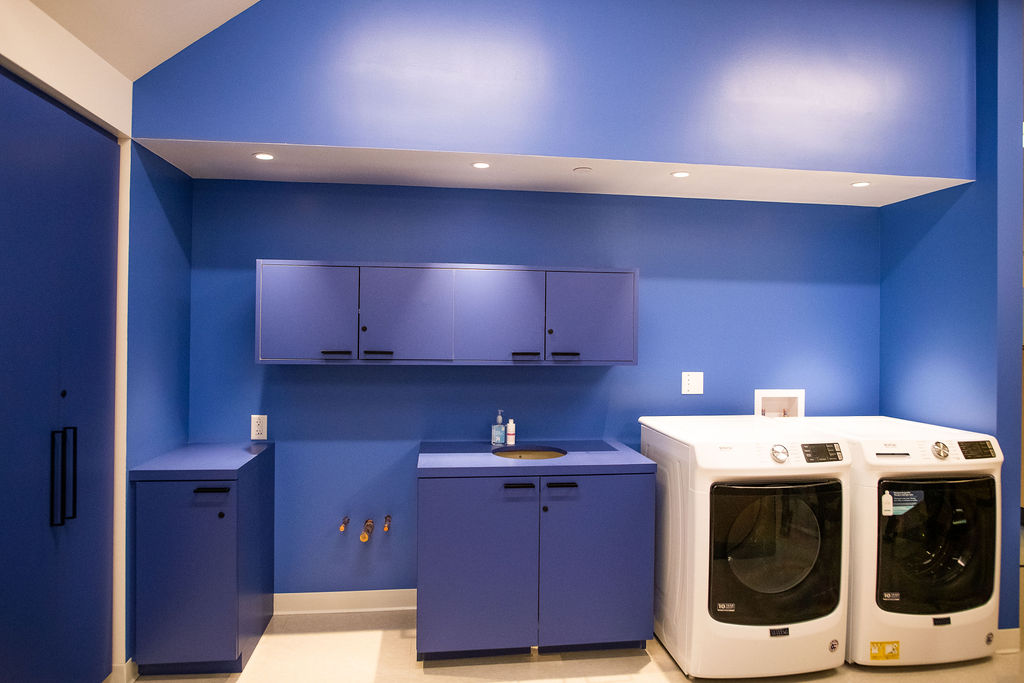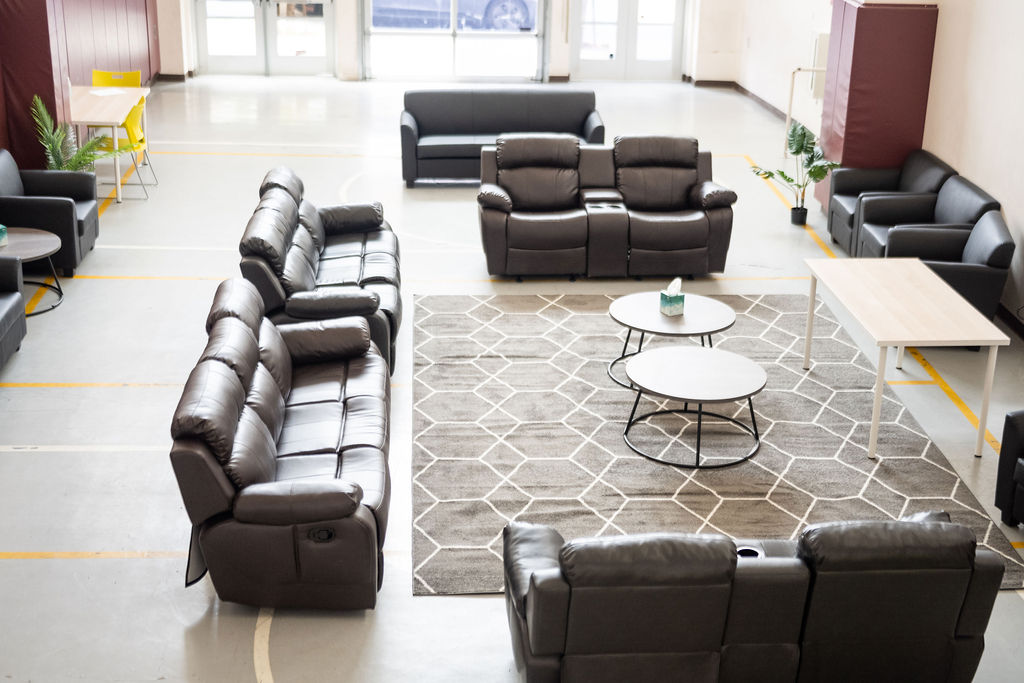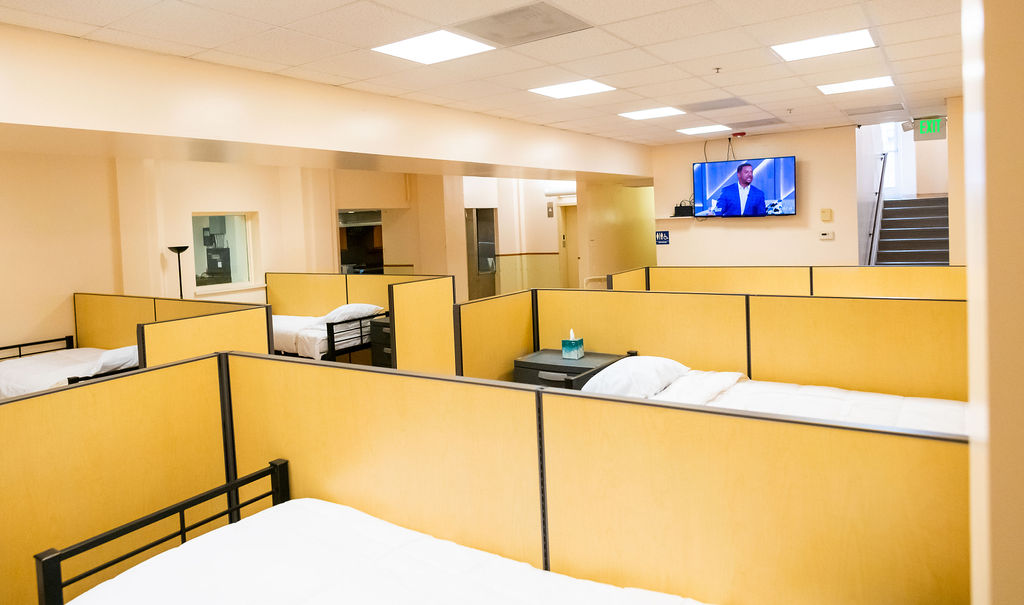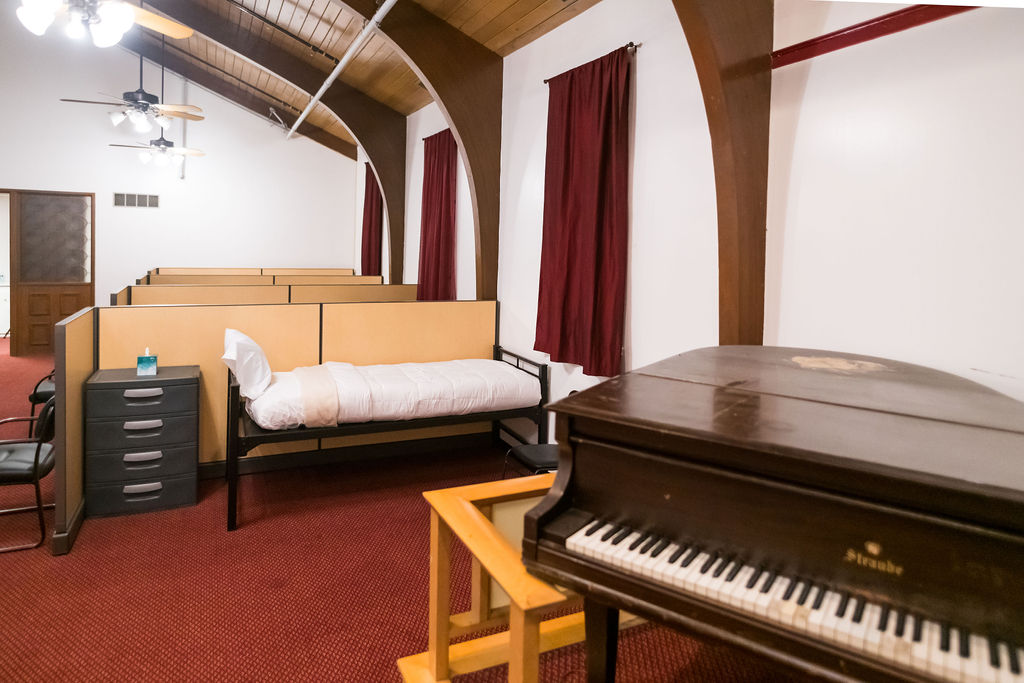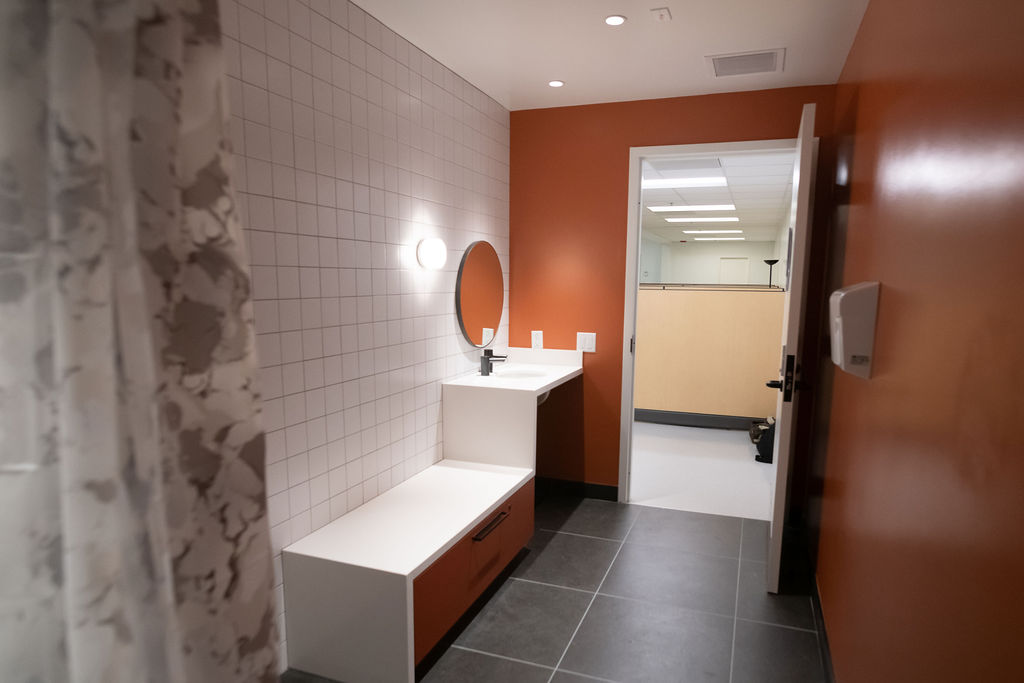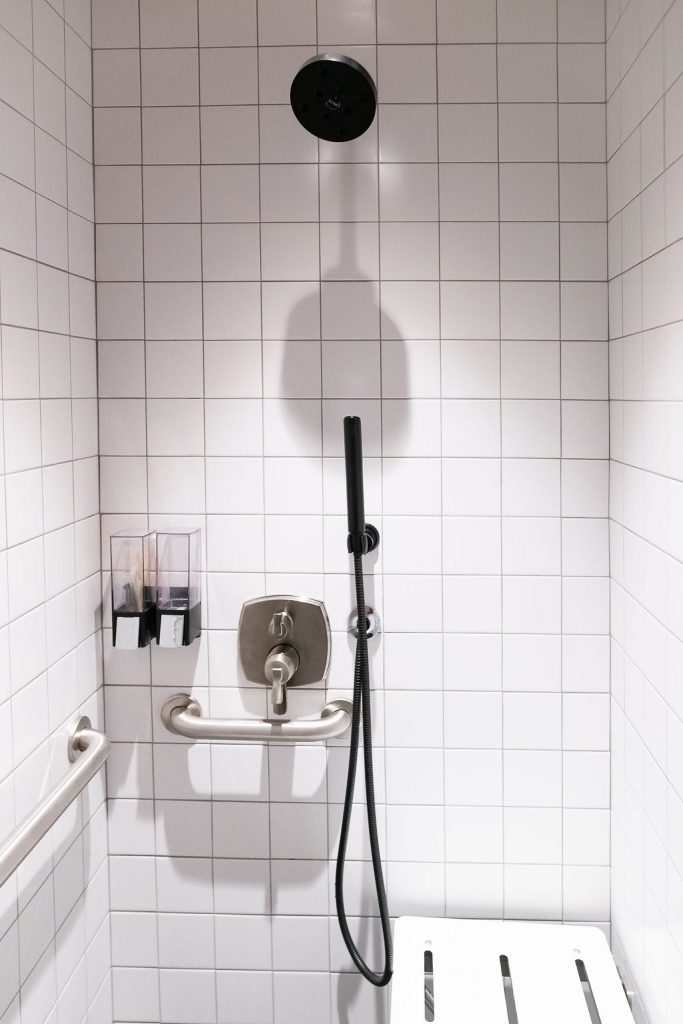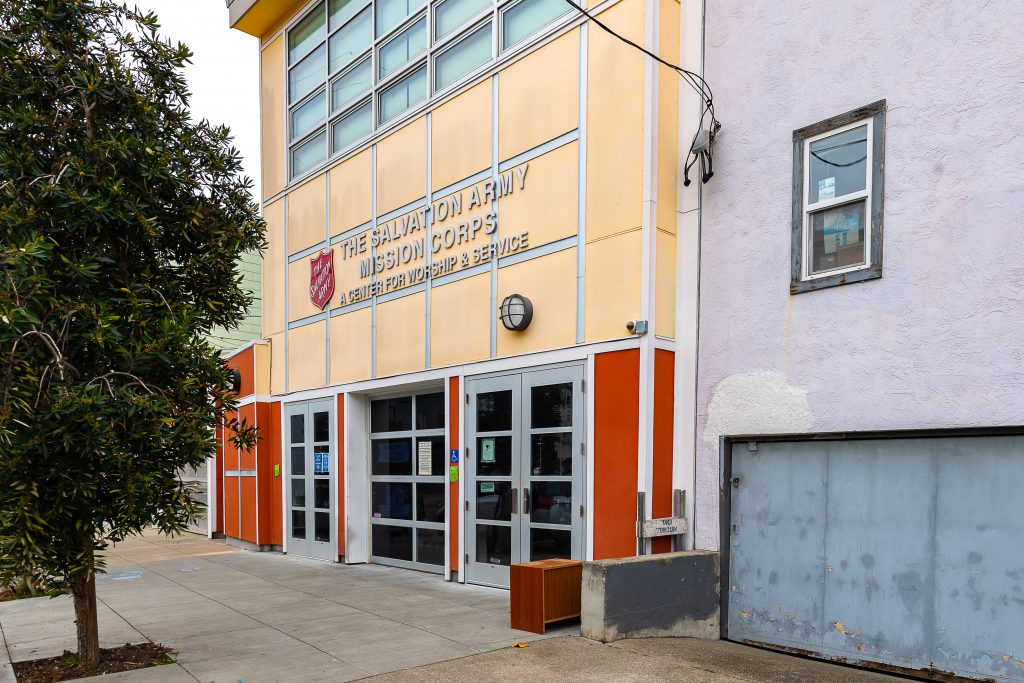Picture yourself living on the streets of San Francisco: you’ve lost your job, your home, your friends, your support system, and as a result, you’ve lost all confidence that things will change for the better. Whether this is the cause or result of substance addiction, struggles with mental health, or a myriad of other circumstances, this is an unfortunate and terrifying reality for thousands of San Francisco residents. The longer a person faces this heartbreaking reality, the harder it becomes to find any light at the end of a seemingly never-ending dark tunnel. That’s where we step in. When all hope is lost, there’s PRC.
On May 18th, 2021, PRC opened its second Hummingbird respite center in San Francisco’s Mission District, where many homeless individuals struggle to find resources and the help needed to make meaningful changes in their lives. Based on the model of its predecessor, Hummingbird Potrero, located at Zuckerberg San Francisco General Hospital, these programs are the first step for those with the desire to change their life course for the better, and get the help needed to assist in making those changes.
Michelle Sanchez is the project director for the new Hummingbird Valencia location, and we recently sat down with her to give our readers an inside look into what services these locations offer, and how they can have a positive impact on a person’s life.
Michelle has an intrinsic desire to help people and has dedicated her career to serving those who need her help. Originally from Southern California, she studied clinical psychology at UC Santa Barbara, then went on to earn her Master’s in the field from Notre Dame De Namur in Belmont. Immediately after graduating she started working for PRC’s Baker Places residential treatment facilities as a counselor, then advanced as the Director of Intake. Her success in that role then led her to become the Project Director for Joe Healy Medical Detox, and after nearly eleven years in the field, her skills and dedication led her to become the Project Director at Hummingbird Valencia. Having worked in nearly every department at Baker Places, she’s gained the knowledge and experience needed to address the complexity of situations her clients face, and to be successful in her role.
Can you explain to our readers what a Hummingbird Center is?
“It’s a low threshold navigation center, a resource center, and a respite, meaning a period of rest or relief from being on the streets. At Hummingbird, we serve our homeless community who struggle with mental health, substance abuse, medical issues, HIV, and everything under the sun. The main purpose of Hummingbird is best described as a question: Where are individuals going to go while they’re waiting for the appropriate program, when they’re not yet eligible for treatment, or when they’re waiting for housing? Many times they don’t have an ID, or they don’t have Medi-Cal. So instead of being out on the street, they’re able to be here in a safe place while we work to refer them to either treatment programs, housing, or link them to case management.”
Is someone able to come to you directly off of the streets, or do they have to be referred?
“We have two programs at Hummingbird Valencia: an overnight program and another for day drop-in clients. For the overnight program need to be referred for overnight stays and approved by the SFDPH Placement Team. They are often referred by Street Crisis Response Team or Homeless Outreach Team. Basically, they need to be part of our homeless community.”
How does that work?
“Our mission is to engage with our community and to let them know that this is a safe place to be, that there are resources out there. As the Project Director, I do my best to monitor our neighborhood and if there is an incident with an individual, we reach out. One of our teams will pick up an individual who’s on the street, they’ll engage with them and tell them about us, and if they decide to give it a try, we do the rest. We coordinate with the client and try to ease them into the idea of treatment. It might just be a matter of getting them through the door or getting a COVID test, coming for coffee, a meal, washing clothes, or taking a shower. The showers are such a luxury here, and some of our clients haven’t had a shower in a long, long time. Those are the basics. They’re just coming straight off of the street, and we’re making them aware of the services we provide while they access our day drop-in services.”
How does the day drop-in program differ from the overnight program?
“Our day drop-in can entail any homeless client coming in to hang out upstairs and watch TV, or take a shower and eat, and they get to leave. They’re here anytime between 10:00 am and 6:00 pm, every day. Some clients benefit from that because they’re not quite ready to commit to a program or to leave their carts and their belongings. They aren’t ready to trust anyone. But they’re at least coming in to dip their toes in the water, or simply have a meal knowing it’s a safe place during the day. Some people who come in have medical issues and we have medical staff here on site. We’re able to talk to them and get them help. So it’s an amazing service.”
Does a client have to leave their belongings behind for them to access your programs?
“We can store moderate amounts, like a single cart, in a secure storage area in our garage, which is guarded by security, and that makes them feel safe. But we do have to debug and label everything if being admitted and staying overnight. These are their belongings, and we want to make sure that we have respect for their things. That’s their whole lives, you know. We do our best to treat their belongings respectfully, so we allow them to bring their things in. We don’t have room to store multiple carts for each person, however, so individuals with multiple carts are hesitant to leave their possessions behind. They also have to take their belongings with them when they leave.”
Are there other services or programs of this kind?
“PRC’s services are a completely unique and new level of care. The Hummingbird centers have never existed before now. Hummingbird Potrero is on the campus of Zuckerberg San Francisco General Hospital. Every day I consult with Melida Solorzano, the Project Director there, to discuss certain clients and the best environment for them to be placed. I previously worked directly under Melida when I was a counselor and I love all the work she’s done as the divisional director at the time. And now at Hummingbird Valencia, it’s nice because I’ve been able to consult with her and pick her brain on things.”
Are you at full capacity now?
“Yes, we are. We have currently have 26 beds and are working to increase capacity to 30 beds in the near future. COVID precautions have required us to integrate additional beds slowly. But people come in and out, and we fill the beds as people leave. That’s what it looks like in any program.”
What happens when you’re full? If somebody comes in, do they get put on a waiting list?
“I have several people who are waiting on a bed, so I’m constantly in contact with the providers, Melida, and Dore Urgent Care Clinic. We’re always trying to make a plan so that clients don’t have to wait very long. Most of the time, people get into Hummingbird Valencia the same day. If they have to wait for a bed, it can take a day or two.”
How long is the average stay?
“About two weeks, though we have a few clients who have been here since July waiting on board and cares facilities that provide 24-hour assistance with things like dressing, bathing, and medication management, and they are slim to none when it comes to availability. A lot of people continue to struggle with substance use while being in a program. So some people might last a week or two, which is great. But there are some who are only here for a couple of days. They felt the need to get some rest from being on the street, and then they go back out. It can be part of that vicious cycle, but every time we engage and welcome them back. The luxury of Hummingbird Valencia is that they can come back.”
Is addiction one of the main factors that causes somebody to leave and then come back?
“Yes, that is the main reason people self-discharge. It’s those cravings. We provide group meetings – a mandatory meeting in the morning and an optional one in the evening, and counselors are here 24/7. A lot of meetings focus on recovery and mental health, but it depends on what the need is. At the same time, we’re trying to engage and plant a seed, letting our clients know that there are resources and help out there. Even in the middle of the night, if they have cravings, or they need to talk to someone, they have our support. We know it takes time, and it’s not going to happen overnight.”
For a client who leaves, how hard is it for them to get back into the program?
“When we’re at full capacity, clients go on the waiting list. But I tell them to keep coming to day drop-in offerings because they’re always welcome. And a few people have. I can write the referral and work with the placement team so it’s possible, and they know this. When clients leave, we always tell them that’s fine, it’s their decision. It’s absolutely voluntary to stay with us, and if they ever want to come back, we are here and can help.
Do all of your clients graduate to other programs?
“A large portion of our clients do move onto other treatment programs. We’re either getting them into substance abuse treatment, or they’re going to one of our Baker programs for dual diagnosis, meaning substance use and mental health treatment. That’s what is so awesome about PRC Baker Places. Other programs usually have a mental health program or a substance abuse program only. We have programs that help with both. That’s where PRC Baker Places really shines. We recognize that they go hand in hand, and we cater to both, which is rare.”
Do your clients get along well?
“For the most part, yes, but there have been a few rare moments of discord. I’ve seen a community unfold and grow, and It’s not always sunshine and rainbows. But I see people making friends, creating community, and building social support, which is great. Clients who are unhappy because they don’t get along with people, or they’re too paranoid, typically leave as a result. They’ll self-discharge if it’s not for them because we’re a voluntary program.”
Have you had to pivot due to COVID 19?
“DPH in collaboration with PRC has developed a process for us to use Binax rapid COVID testing at our location. Our process is to test all individuals arriving for day drop-in and overnight beds prior to their entry into the program. We work with the San Francisco Department of Public Health (SFDPH) COVID Command staff to inform them of any positive test results and have a process for confirmatory testing. We work with SFDPH providers in securing a location for the client to enter if they have a positive Binax test so they can be monitored and have care provided as necessary.”
Have you had any outbreaks at Hummingbird?
“There hasn’t been an outbreak because we are diligent, and we follow the recommended health protocols. Our instances of client positive COVID tests are rare because we require both staff and clients to adhere to safe practices for COVID mitigation including the use of PPE, wearing masks, and social distancing. For example, one client who tested positive was working with the Street Crisis Response Team. They were able to take the client to the hospital and work with him to get a shelter-in-place hotel instead of dropping him off in the neighborhood where it could potentially spread. It was an opportunity to also educate the client about COVID and the benefits of wearing a mask, and make sure that he was aware of the importance of not only continuing to get tested, but also going to the hospital, monitoring his symptoms, and not spreading it.”
Has the pandemic limited your ability to move clients through the programs?
“Yes, COVID has slowed the process for getting clients into our programs, but clients haven’t had to wait too long as compared to last year, and we have multiple Baker Places programs that they can go to. It’s generally wherever a bed is available. And we work very closely with our intake department so we’re tracking clients from day one of them being with us.”
How many more Hummingbird facilities do we need in our city?
“Oh my! As many as we can get, and I’d love to be part of them all! It’s been amazing to witness so many positive success stories in the short amount of time we’ve been open.”
While we would love to have multiple clones of Michelle and a Hummingbird facility in every San Francisco neighborhood, we also need the resources to ensure that each of the many thousands of homeless individuals living on our streets has a bed and the programs needed to assist them on their journey to recovery and greater independence.
If you’ve enjoyed learning about Hummingbird Valencia and how Michelle assists San Francisco’s homeless population on their journey to recovery, please consider supporting this work with a donation today.
If you would like to learn more about the work being done at PRC, we invite you to read more client and staff stories on our blog.

